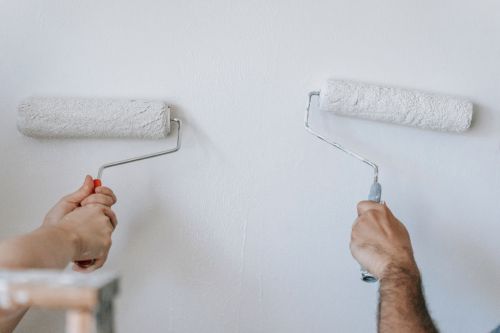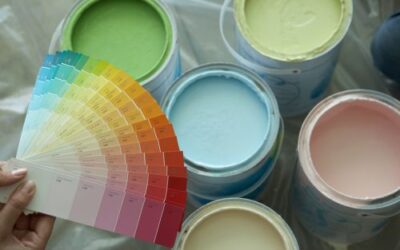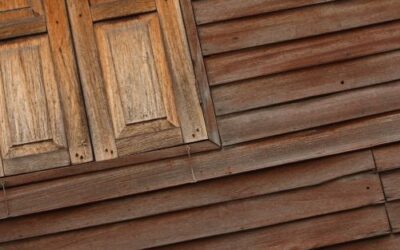When we think of painting our house, we usually think of colours. But there is another equally important detail that can completely change the result: the paint finish. Choosing between matt, satin or gloss paint not only affects the aesthetics, but also the maintenance, durability and functionality of each space.
In this article we explain the key differences between these three finishes and guide you on which one to choose for each type of room according to our experience in interior decorative painting works in Jávea and surroundings.
Contact our professionals
Matt paint: discreet and elegant
The matt finish is opaque, without shine. Its smooth texture makes it an excellent choice for concealing imperfections in walls or ceilings. In older homes or spaces with visible repairs, this paint offers a uniform finish.
Main advantages:
-
Disguises cracks, bumps or uneven surfaces
-
Provides visual warmth
-
Ideal for ceilings and walls with little exposure to friction
Disadvantages:
-
Less washable
-
Not recommended in damp or high traffic areas
In decorative painting work, we usually recommend matt paint for bedrooms, living rooms, offices or interior ceilings, where a serene and welcoming atmosphere is sought.
Satin paint: the most versatile balance
The satin finish has a soft sheen, more luminous than matt, but without reaching the intense shine. It reflects light slightly and is much more resistant to scratches, cleaning and humidity.
The best thing about satin finish:
-
Longer durability
-
It can be cleaned with a damp cloth
-
It provides luminosity, ideal for rooms with little natural light
However, to obtain a good result, the surface must be well prepared, as it can highlight small imperfections.
We use satin paint in corridors, kitchens, children’s rooms and ventilated bathrooms, where the combination of cleanliness, resistance and aesthetics is essential. It is also common in some façade refurbishment work when light is to be preserved without excessive reflection.
Gloss paint: resistance and prominence
Gloss paint is the most reflective paint. Its glossy finish enhances the colour, highlights the decor and offers the highest resistance to moisture, scuffing and dirt.
Ideal for:
-
Kitchens and bathrooms
-
Wet areas or areas exposed to wear and tear
-
Mouldings, doors, windows or furniture
-
Treatment of metal elements (such as railings, grilles or exterior carpentry)
Of course, the higher the gloss, the more imperfections are noticeable. That is why it is important to prepare the surface correctly before painting.
Bruguer recommends the use of gloss finishes especially in environments where cleanliness and durability are a priority, such as kitchens or children’s rooms.
How do you know which one to choose?
There is no single perfect finish. It will depend on:
-
The use of the room
-
The level of humidity or traffic
-
The type of surface and its condition
-
The decorative effect you want
For example:
-
On ceilings, it is most common to use matt paint, as it avoids reflections and hides imperfections.
-
In communal areas or areas with children, we recommend satin or even glossy finishes.
- On interior facades with humidity, we also opt for satin or waterproofing treatments, such as those we use in our waterproofing services.
If you have wood in the space (furniture, beams, doors), it is also important to consider its treatment.
Need help deciding?
At Bartolomé Bas Pinturas we have been advising owners, architects and decorators for more than 35 years on the choice of materials and finishes for each space. We study the orientation, use of space, lifestyle and existing materials to help you achieve the best possible result.
If you are thinking of renovating your home, get in touch with us through our contact form or request a no-obligation quote. Contact our professionals
Other publications that may interest you
Colours that increase the feeling of space in small houses
You don't need to tear down partitions or do a complete renovation to make your house look bigger. In many cases, paint can completely transform the perception of space. Choosing the right colours not only brings harmony and light, but also creates the illusion of...
Basic care to extend the service life of exterior wood
Discover how to protect and maintain outdoor wood Wood is a warm, elegant and natural material, ideal for terraces, windows, pergolas or outdoor furniture. But in order to preserve its beauty and functionality, it needs specific care against the aggressions of the...
How long does it take for the smell of paint to go away?
The smell of fresh paint can be pleasant for some people (it's a sign of renovation!) and very annoying for others. The truth is that this characteristic smell is not harmless: it comes from chemical compounds emitted by the paint as it dries. If you're wondering how...




